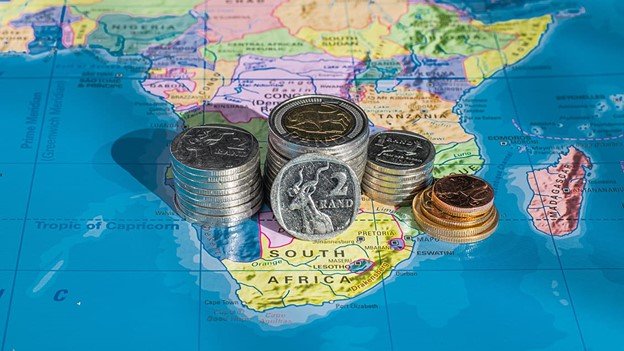Africa, a continent abundant in natural resources, continues to present immense opportunities for global investment in 2025 and beyond. Despite its wealth of resources, it has historically been underrepresented within the vast asset portfolios of international fund managers. The primary challenge, experts suggest, lies in liquidity rather than a lack of opportunities. However, with forward-looking reforms and improved economic dynamics, Africa is positioning itself as a significant player in global markets.
Emily Fletcher, co-manager of the Frontiers Investment Trust at BlackRock, the world’s largest asset manager, acknowledges past difficulties but sees reasons for optimism. “It has been a tough decade for African markets,” she observes. Over the past ten years to April 2024, key markets faced sharp declines: Kenya’s market dropped 12%, Nigeria’s by a staggering 89%, and Egypt’s by 46%. Even South Africa, with its larger index, recorded only a modest 7% return. However, 2025 and the years ahead offer new possibilities, as structural changes and policy reforms take shape across the continent. These shifts highlight the minimal correlation between economic expansion and stock performance in emerging markets while also signaling potential for future alignment.
Emerging Opportunities in Key Markets
Nigeria, Africa’s most populous nation, exemplifies the continent’s transformative journey. Foreign exchange shortages, a significant impediment in the past, are gradually being addressed. This progress is supported by recent policy adjustments aimed at fostering a more investor-friendly environment. President Bola Tinubu’s reform agenda, introduced in 2024, has begun to instill confidence among investors, with promises to ease capital repatriation and streamline bureaucratic hurdles.
David Gibson-Moore, president of consultancy Gulf Analytica and senior adviser to the multi-billion-dollar Ashanti Foundation in Ghana, cites “bureaucratic inefficiencies, regulatory bottlenecks, and corruption and governance issues” as historical barriers. However, he acknowledges that ongoing reforms signal a brighter future. In Nigeria, improved foreign exchange access and deregulation efforts are already encouraging greater international participation.
Egypt, too, has made strides in addressing currency-related challenges. Both Egypt and Nigeria allowed their currencies to weaken significantly against the US dollar in 2024, improving access to foreign exchange. Gregory Longe, portfolio manager of the Africa Frontiers Strategy at Coronation Fund Managers, describes this as a “dramatic improvement” for markets long plagued by dollar shortages. These steps are expected to bolster investor confidence through 2025 and beyond.
Promising Sectors and Long-Term Growth
Seasoned investors like Mark Mobius, chair of the Mobius Emerging Opportunities Fund, are increasingly optimistic about Africa’s prospects. For 2025 and the years to come, he identifies South Africa, Egypt, Morocco, Nigeria, and Kenya as particularly attractive markets. While political and economic hurdles persist, Mobius emphasizes the potential of individual companies within sectors such as broadcasting, retail, mining, and banking. Companies with strong earnings growth and low debt remain especially compelling.
Standout investment opportunities include Egyptian e-payments company Fawry, Moroccan property firm Douja Promotion Groupe Addoha, and Kenya’s mobile network operator Safaricom. In South Africa, internet and media conglomerate Naspers and Standard Bank remain strong contenders. “Naspers trades at a significant discount to the value of its portfolio and has improved capital allocation,” notes Chris Tennant of Fidelity International. “Standard Bank, with its diversified portfolio across sub-Saharan Africa, is attractively valued.”
Emerging technologies, renewable energy, and digital finance are expected to play a critical role in Africa’s growth trajectory. Countries investing in infrastructure and education are poised to benefit from a younger, more technologically savvy population driving consumption and innovation.
The Road Ahead
Investing in Africa in 2025 and beyond requires diligence and a nuanced understanding of its evolving markets. While challenges such as capital controls and governance issues persist, the continent’s potential is undeniable. For investors willing to navigate these complexities, Africa offers a wealth of opportunities beneath the surface.
As global markets continue to evolve, Africa’s unique positioning and resource wealth make it a frontier for strategic, long-term investment. With ongoing reforms, demographic dividends, and a focus on improving market accessibility, the continent is poised to play an increasingly prominent role in global portfolios. The time to embrace Africa’s dynamic and transformative potential is now.





